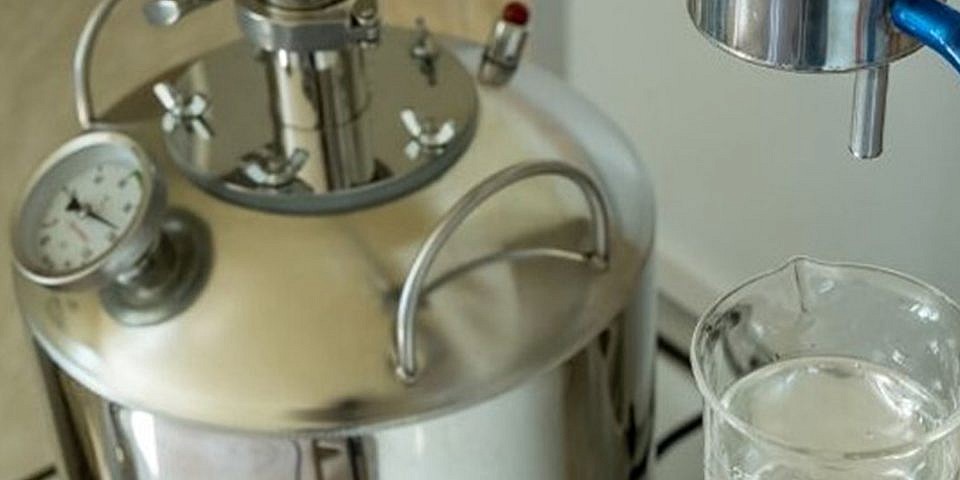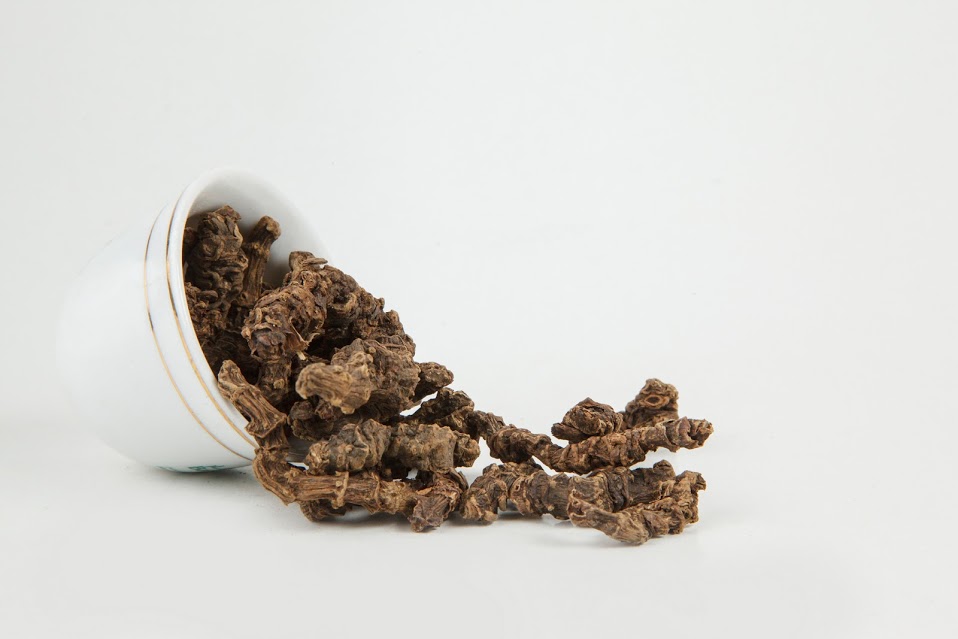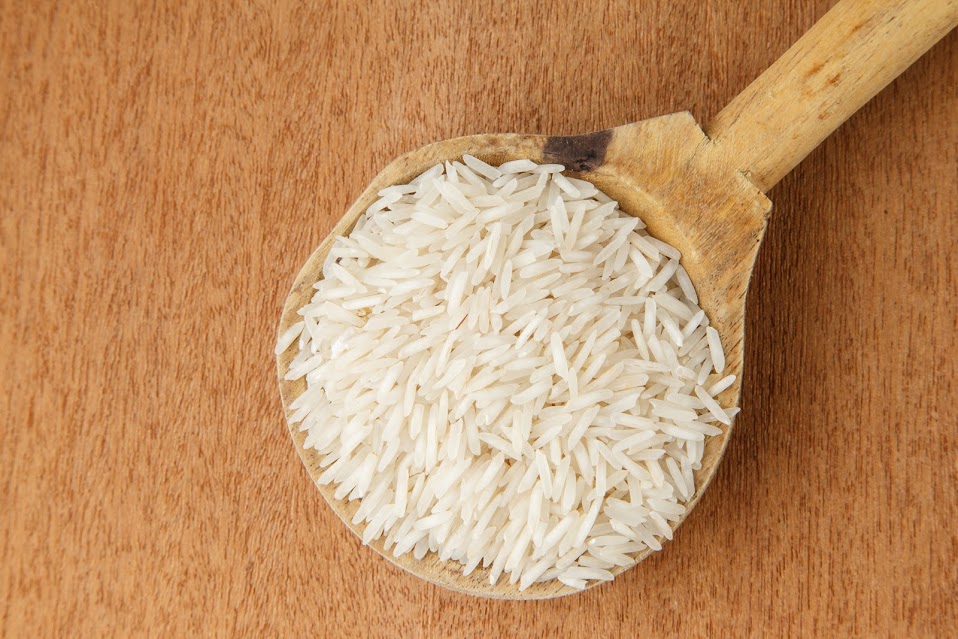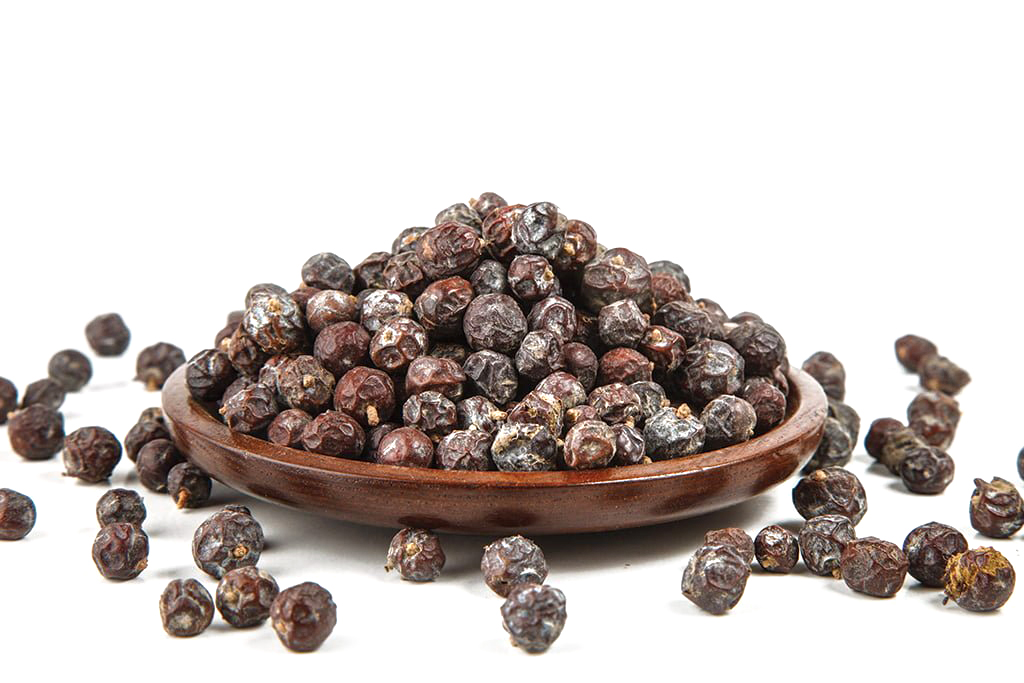
Juniper Berry in Pakistan, Berries for Distillation
November 7, 2022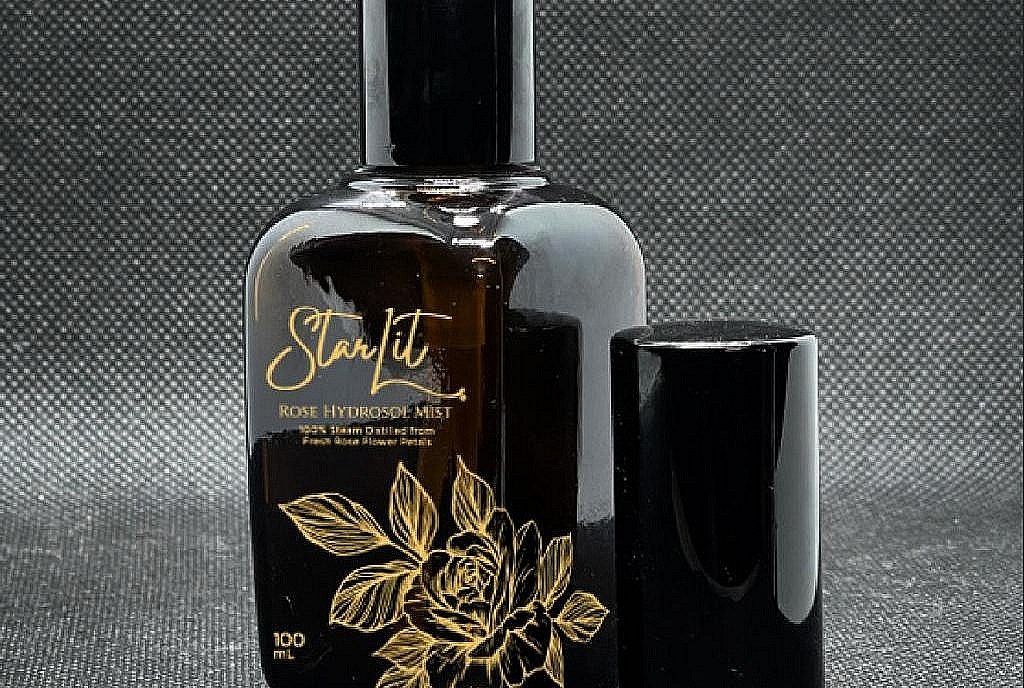
Rose Hydrosol Mist: Your Guide to Natural Beauty and Wellness
May 22, 2023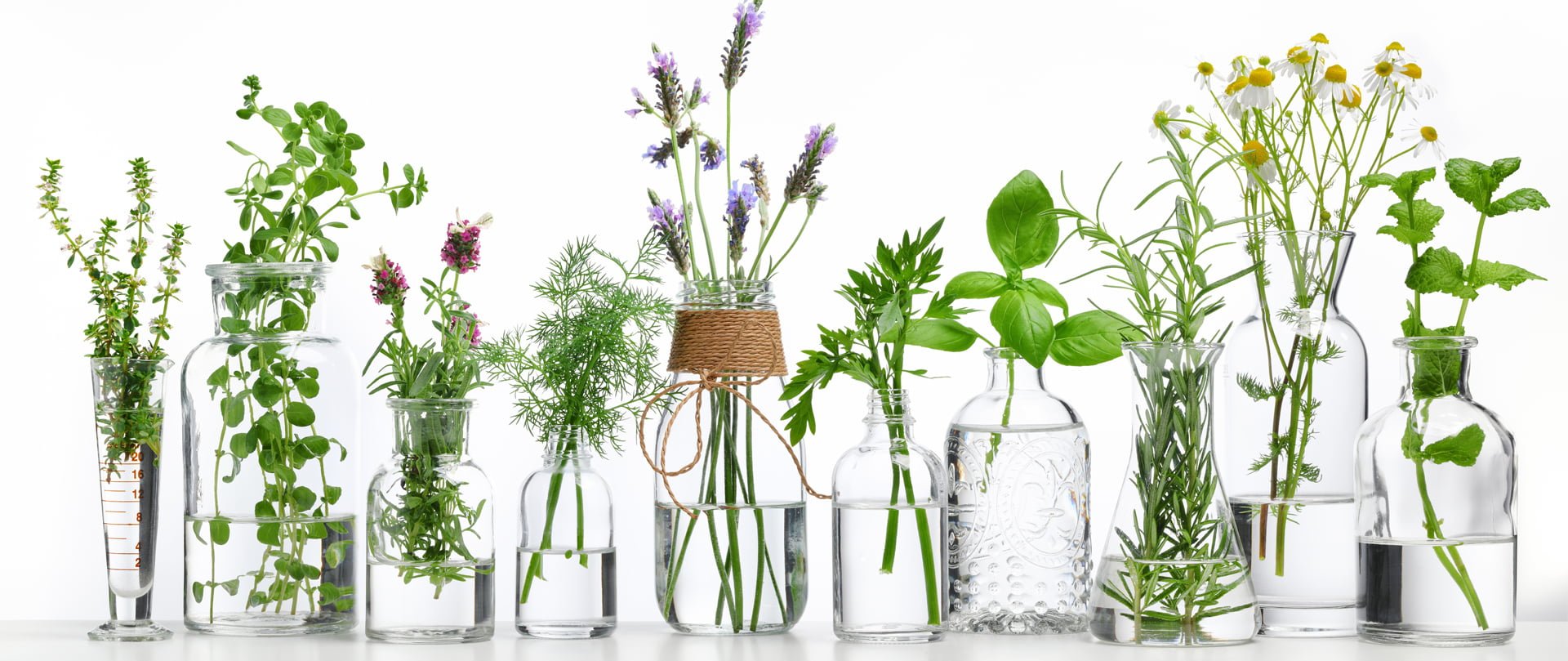
Steam Distillation
Steam distillation is a process to purify or concentrate a substance. This method separates the volatile substance from the less volatile substances. Steam or water is added to the distillation apparatus, which lowers the boiling points of the compounds. The aim is to heat and separate the components at temperatures below their decomposition point.
Process of Steam Distillation
During steam distillation, hot steam is pressed through the raw material matrix, opening up the cavities in which the oil is located and evaporating the oils. This process is actually a pure steam distillation. The oil is separated from the water in the distillate and collected. As the steam is under pressure, the temperature can be carefully adjusted to provide the maximum rate of extraction with minimal thermal degradation.
Steam Distillation over Simple Distillation
Under the steam distillation method, the temperature is lowered and pressure is reduced allowing the liquids to be distilled with a boiling point higher than the boiling point of water. It also makes distillation faster and more accurate compared to simple distillation. The liquid is converted to vapor changing the more volatile component when the mixture is heated in the simple distillation method. The vapor rises and goes to a condenser. Usually, the condenser is cooled to promote condensation of the vapor that is collected. The advantage of steam distillation over simple distillation is that the lower boiling point reduces the decomposition of temperature-sensitive compounds.
- Extraction of Essential Oils by Steam Distillation Method: Steam distillation is the primary method when extracting essential oil. The process involves moving steam through crushed or ground plant material and then, with some pressure, hot steam can cause the oils to loosen from their protective sacs. It applies low-pressure steam to replace volatile compounds in intact plant matter. Steam distillation allows temperature control and the amount of steam that is applied to the plant material. This method can remove oil from plant matter. It consists of a lid that prevents the oil from dispersing in the air when steam is applied. Then we can collect the water and oil droplets that have undergone consideration. The water and oil are separated as they pass through the filter.
Which products can be steam distilled?
- The steam distillation process is used to separate temperature-sensitive organic compounds such as aromatic substances.
- It also helps extract oils from natural products like citrus oil, eucalyptus oil, and more natural substances derived from organic matter.
- The steam distillation process is widely used in the manufacture of perfumes and colognes, as well as in the manufacture of some cooking materials.
- Steam distillation is also used in oil production in food industry to separate fatty acids from mixtures.
- The partial modification technique of steam distillation is used to isolate dairy flavors from dairy products.
- Crude oil contains a variety of components, with each component being isolated step by step in oil refineries using the steam distillation process.
- Hydrosol: An example of a byproduct of distillation process is the hydrosol. When the plant based raw materials such as leaves, petals, flowers, roots are steam distilled, the resulting pure natural waters is hydrosol. They are made using the same distillation process that extracts the essential oils.
The yield ratio of the product to distilled final product
Steam distillation is the most widely used method for extracting essential oils and isolating petroleum components. Proper selection of the distillation technique plays a crucial role in determining the quality and yield of end products. Several modifications of this technique are very useful to get better yield and quality product in less time.
Production of Gins & Spirits
Botanicals are main ingredients used in gin making to flavor profiles. The three main ingredients used in most gins are juniper, coriander and angelica. There are many natural botanical herbs, berries and fruits that add a distinctive flavor to any gin depending on the recipe.
Gin is an alcoholic beverage obtained from grain by distillation. In the distillation process, botanicals are added along with water until the desired flavors are achieved. The spirit must have a predominant flavor of juniper berries to be called a gin.
Advantages of Steam Distillation
Following advantages of steam distillation are;
- This process produces products free of organic solvents
- No additional steps are required after the steam distillation process
- It has a large capacity on an industrial scale for oil processing
- The equipment is economical
- Steam distillation of essential oils from a steam boiler requires a very small amount of fuel
- Mainly, this process is used for oil extraction on an industrial scale
- Participates in the extraction of materials from the plant body such as stem and roots
- It is used as a high boiling point steam distilled oil
- Extraction of essential oils by steam distillation is easily possible
Industry Shift towards Natural & Organic Products
In this age, people have become more aware to choose ‘natural’, ‘non-gmo’ and ‘organic’ products. Preference has increased for reasons such as the ecosystem and water conservation. Consumers are aware of the harmful effects of the use of artificial chemicals and pesticides. The soil is managed and nourished in a different way, which allows the food to develop more nutrients during the growing process. The non-modified products, meaning the natural form are preferred as the awareness has globally increased. The herbicides are widely used as opposed to pesticides that control pests. There is a set limit of pesticides beyond which the products become unacceptable according to USFDA and EU codes/rules. Synthetic fertilizers, growth regulators, artificial chemicals, hormones, antibiotics, pesticides or livestock feed additives are not used in producing organic food. Natural fertilizers such as manure are used to enhance plant growth in organic plants.
Top Spirit Markets in the World
Gin is distilled in 68 different countries currently, however the below mentioned 5 countries are the world’s largest gin markets:
Philippines
This number one position may surprise many, but the Philippines is by far the largest gin market in the world, purchasing 265 million liters of spirits in 2012.
United Kingdom
The widespread rise in premiumization of gin and the rise of craft gin distilleries in the UK also contributed to the 31.2 million liters of spirits consumed in the UK in 2012.
United States
As in the UK, the tremendous popularity of cocktails has boosted gin sales in the US, which reached 98.1 million liters in 2012. US distilleries are also innovating in this category, sparking interest in a region's indigenous style of gin.
Spain
Spain has been considered a major gin market for some time due to the immense popularity of gin and tonic, with the country creating its own service with bulbous glasses and lots of accompaniments.
India
India ranks the fifth largest market. Almost 25.8 million liters of the spirit were bought in 2012, and while it's an old favorite among British colonials. It's increasingly available in top hotels and restaurants.
The elements that determine the quality of spirits
There are two main methods of making gin, with or without distillation. Distilled gins are considered of higher quality. Botanicals are primary ingredients used in gin making to flavor profiles. The three main ingredients used in most gins are juniper, coriander and angelica. While these are the most popular, there are hundreds of flowers, roots, fruits, berries and nuts used to add a distinctive flavor to any gin. The components of gin are water, alcohol and compounds from plant materials, essential oils and fruits used in its production. Gin is a colorless distilled beverage that is widely consumed around the world and is made using a variety of methods, but always with juniper as the predominant flavor.
Countries that consume most gin volumes
Gin is the world’s most popular distilled spirits consisting of spices, and herbs, more particularly use of juniper berry for gin is famous. Top 10 countries that consume the most gin are:
- United States
- United Kingdom
- Germany
- Italy
- Switzerland
- Belgium
- Netherlands
- Poland
- Canada
- Spain
Typical Gin Making Process and its Storage
Gin Making Process
- To create a fermentable base, gin makers mix dried and brewed grains with water and yeast. They then heat and stir the mixture to ensure it is well blended and ready to ferment.
- Gin makers then store their base blend for a set amount of time to fully ferment the blend. During this step, the compounds begin to break down, creating a simple natural alcohol called ethanol.
- Once fermentation is complete, gin makers filter the liquid from the fermented solids. They discard the solids and use the liquid (ethanol) to make gin.
- Distillation is a process in which a liquid is purified by heating it and evaporating it, and then collecting the vapor as it condenses back into a liquid. The resulting liquid is considered purer. Gin makers have different approaches to distillation, some can only distil once or twice while others need to distil and redistill many times for a purer result. They can also add botanicals at different stages of the process; some soak their botanicals in ethanol before or between distillations while some add botanicals during distillation using a special still. Juniper berries have a woody, piney flavor. They are believed to be the only botanical ingredient required for the liqueur to qualify as gin and are usually added during the distillation process.
Storage
Once the distillers have their distilled product, they will dilute the gin to the desired alcohol strength by testing the volume of the alcohol and gradually adding water. This step allows distillers making gin liqueur to add additional flavors or sugar to create products. The final step is the bottling process, where gin makers fill the final product into labeled bottles.
The core botanical ingredient of craft gin production i.e. juniper berries and angelica root are available for supply in bulk. You may inquire at info@nutralfa.uk or WhatsApp at +92 330 2021510.

